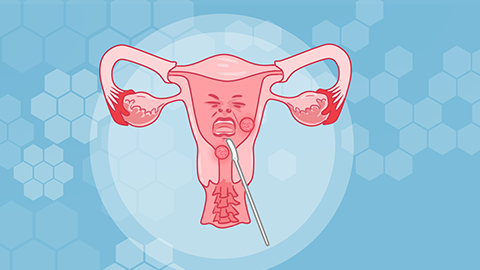How are uterine fibroids caused?
Generally, the main causes of uterine fibroids include hormonal changes, aging, endometritis, polycystic ovary syndrome, and adenomyosis. If discomfort symptoms occur, timely visit to a regular hospital for diagnosis and treatment is recommended. Detailed analysis is as follows:

1. Hormonal Changes
Long-term hormonal imbalance, particularly excessive estrogen stimulation of uterine smooth muscle cells in women, can easily lead to abnormal cell proliferation and the formation of uterine fibroids. It is important to maintain a regular lifestyle, avoid staying up late, reduce intake of spicy and irritating foods, and take medications such as Guizhi Fuling capsules or Hongjin Xiaojie capsules under a doctor's guidance to regulate hormonal balance and inhibit fibroid growth.
2. Aging
In women aged 30 to 50 years, ovarian function gradually changes, with greater fluctuations in hormone secretion, and increased sensitivity of uterine smooth muscle to hormones, making fibroids more likely to develop. Regular gynecological examinations are necessary to monitor uterine conditions. If fibroids are small and asymptomatic, moderate exercise can improve physical fitness and delay fibroid progression; if symptoms appear, timely medical intervention is required.
3. Endometritis
Inflammation caused by bacterial infection of the endometrium can, over time, disrupt the uterine internal environment, affect the normal structure of uterine smooth muscle, and increase the risk of fibroids. Under a doctor's guidance, medications such as metronidazole tablets, levofloxacin hydrochloride capsules, and Fuke Qianjin tablets can be taken to control infection, improve the intrauterine environment, and reduce the likelihood of fibroid development.
4. Polycystic Ovary Syndrome
This condition causes the ovaries to secrete excessive androgens. After androgens are converted into estrogens, the elevated estrogen levels stimulate uterine smooth muscle proliferation, inducing uterine fibroids. It is necessary to take medications such as dydrogesterone tablets, ethinylestradiol cyproterone acetate tablets, or spironolactone tablets under a doctor's guidance to regulate hormone secretion, control weight, reduce intake of high-sugar and high-fat foods, and improve the condition.
5. Adenomyosis
When the endometrium invades the myometrium, it disrupts the normal structure and function of the uterus, stimulates abnormal proliferation of uterine smooth muscle, thereby increasing the risk of uterine fibroids. Patients with mild symptoms can take gestrinone capsules under a doctor's guidance for relief; those with severe conditions can undergo adenomyosis lesion resection to improve the intrauterine environment and reduce the likelihood of fibroid development.
In daily life, maintaining external genital hygiene and avoiding unclean sexual practices are important. Eating a balanced diet with regular meals, reducing intake of hormone-containing health products, maintaining a positive mindset, avoiding long-term emotional fluctuations, and undergoing regular gynecological examinations are essential for timely detection and treatment of gynecological diseases to maintain uterine health.








